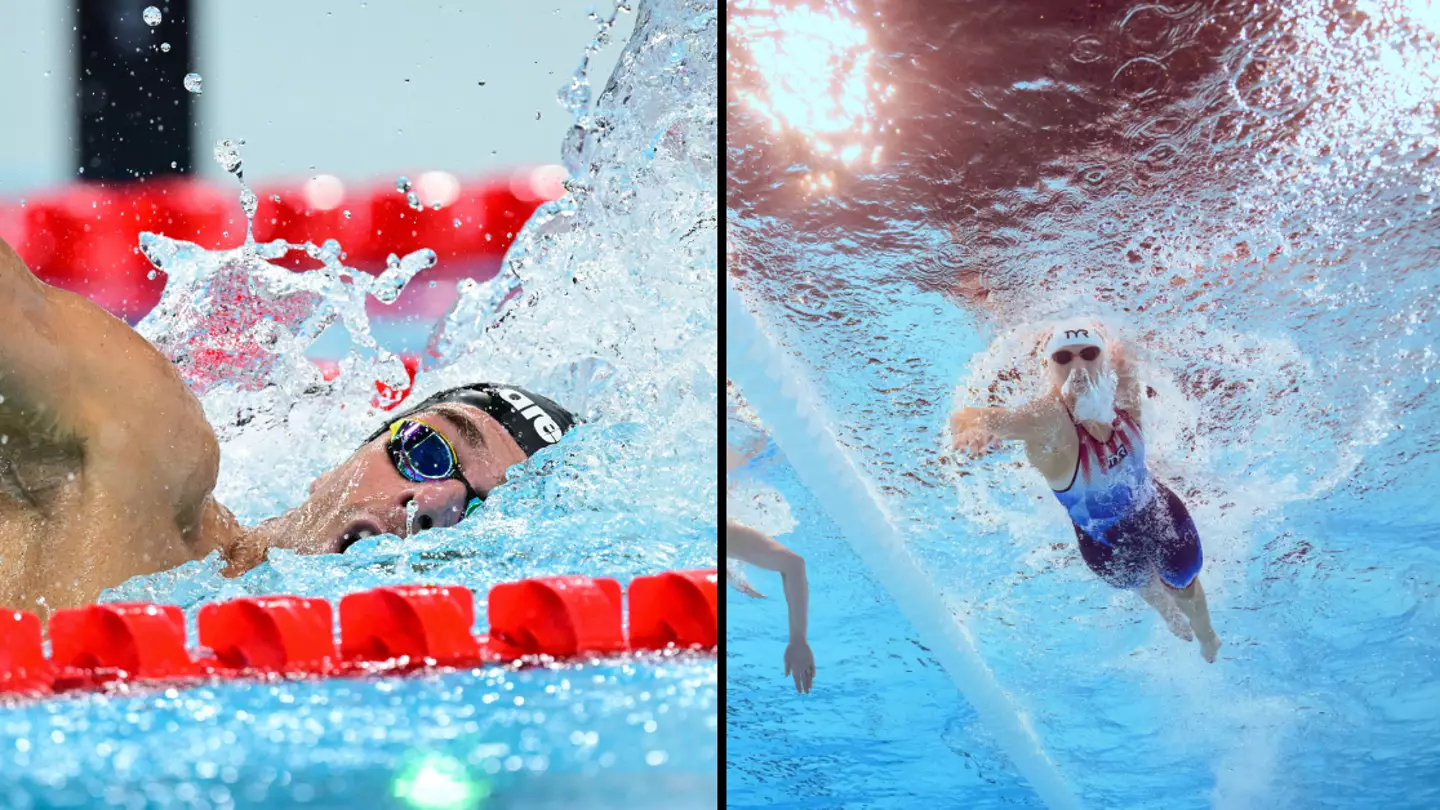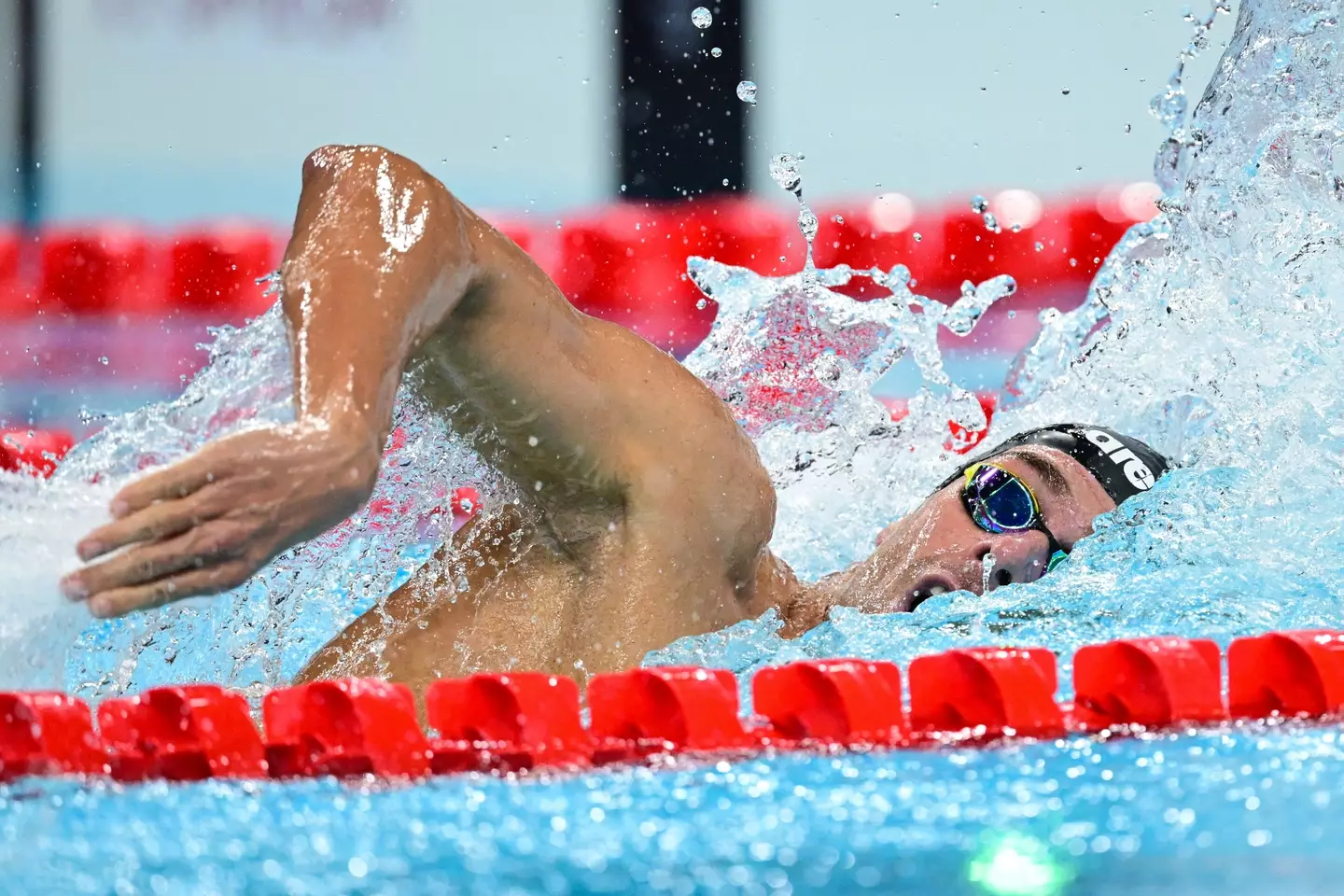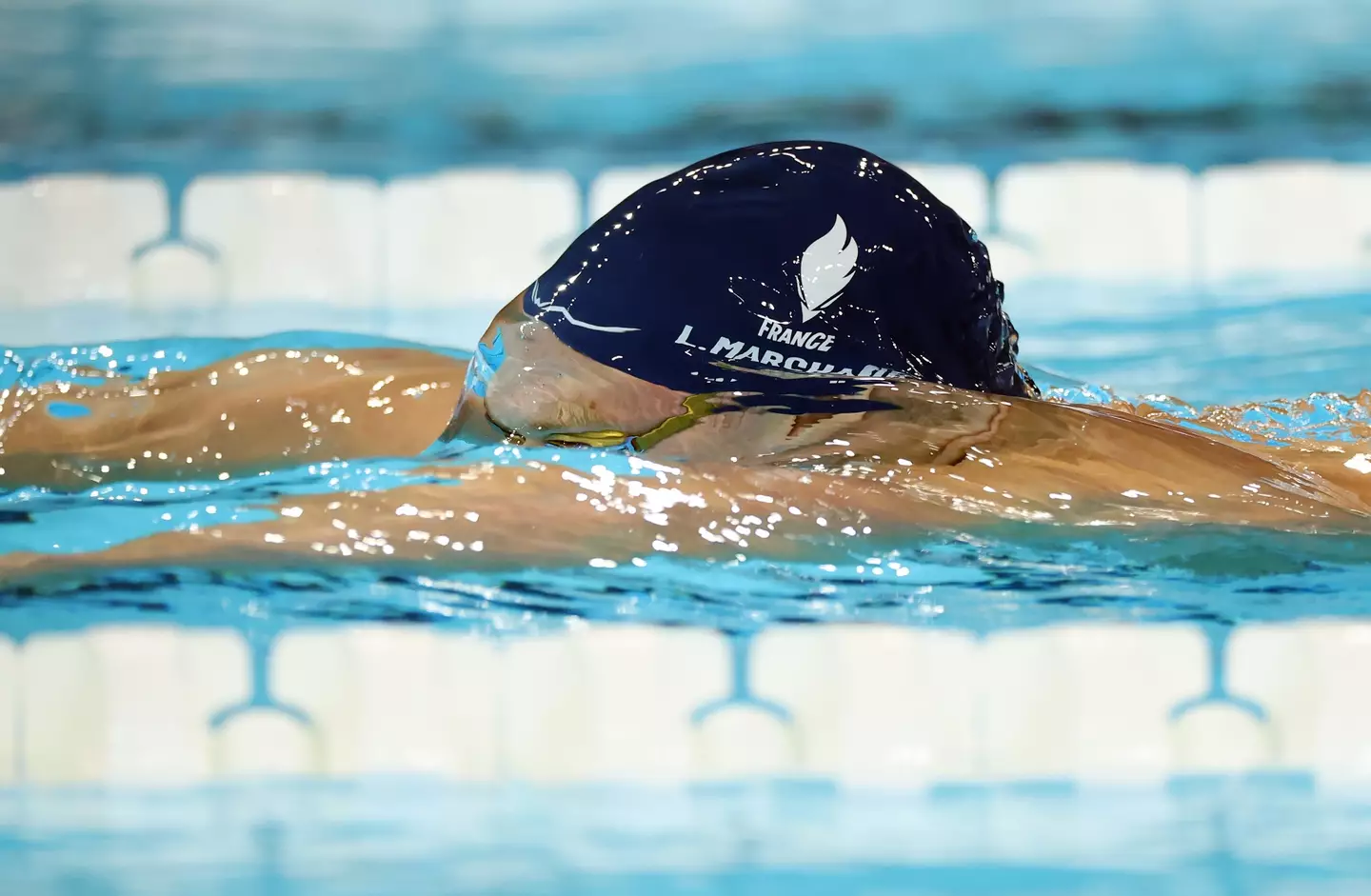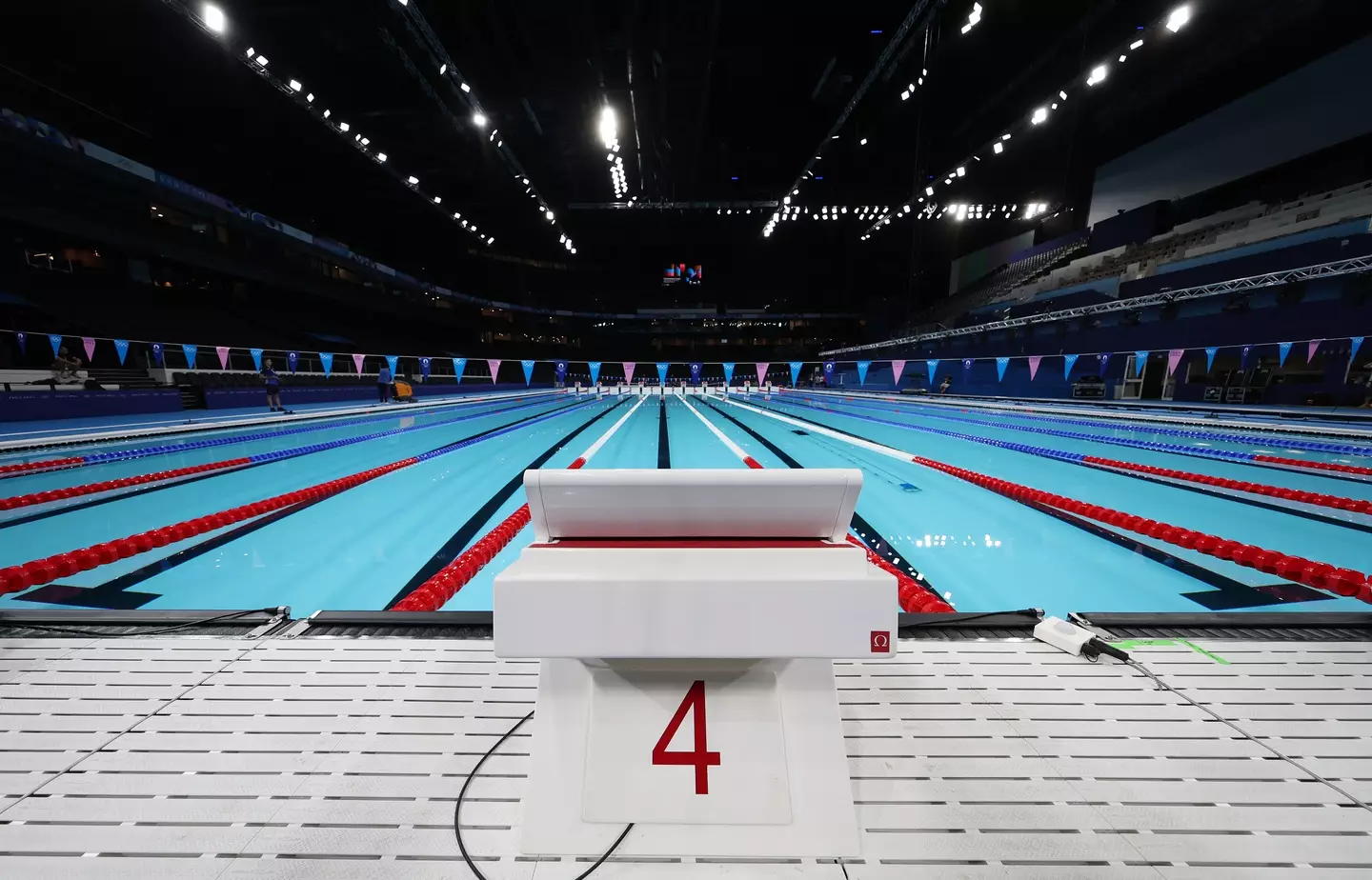
Winning gold is the dream of every Olympic athlete that has made the journey to the 2024 Paris Olympics.
But online chatter is gathering pace when it comes to the matter of Olympic and world records, and more specifically, breaking them in the swimming events.
The Paris Games has been hit by an online conspiracy rumouring that this is due to events that happened 16 years ago at the 2008 Beijing Olympics; although we're not convinced.
Advert
But times are slower. So is there any truth behind the theory?
Paris Olympics and its 'slow pool'
Every swimming event, except for the triathlon and swimming marathon, is taking place in the La Défense Arena; a rugby stadium which has been transformed in to a temporary swimming arena.
The pool, which is not built in to the ground like a permanent swimming arena is, sits at a depth of 2.15 metres.
Advert
That's a problem, some say, as it sits below the recommendations set out by World Aquatics. The body states that the minimum depth for an Olympic event should be 2.5 metres.
For Olympic swimming events in general, it is recommended that pools should be three metres deep.

Why does this make it a 'slow pool'?
It is all to do with water displacement and force exerted by the swimmers.
Advert
When moving through a shallower pool, the water is more choppy as there is more chance of waves and water bouncing off of the floor due to it being closer.
Water is calmer when the pool is deeper, as the force needed for strokes to bounce back up and cause waves is less.
The choppier the water, the more resistance experienced by swimmers when moving through the pool and the harder it is to match the speeds they'd face in a calmer pool.

Is it actually happening, though?
Yes. So far, no swimming records have been broken at the 2024 Paris Olympics.
Advert
And athletes have been significantly short of their own personal bests (PB), despite coming to the Games in peak physical condition.
For context, the 2020 Tokyo Olympics saw six new world records in swimming, with eight set in the 2016 Rio Olympics.
The trials for Team USA were performed in a pool that was 2.8 metres deep but fast-forward to the Paris Games and their breakout star Gretchen Walsh hasn't been able to match her PB.
Team GB swimmer Jacob Whittle told The Sun the pool was 'a bit like swimming in the sea'.
"It's just one of them pools, some pools feel great, some pools don't, a few waves, feels a bit strange being a bit shallower, nothing that we can't deal with," he said.
Advert
"It's just hard racing but that's what we enjoy, that's what we came here to do. It's a bit like swimming in the sea but not to that extent. There's a lot of waves when coming out of the turn."
Another competitor told Sports Illustrated that the pool was 'absurdly slow and lacks depth', while also being left bemused at it having 'strange levels'.
It seems it's an issue for everyone, though, with Italy's Nicolo Martinenghi saying 'the time wasn't fast for anybody' in the men's 100m breaststroke final.

Mixed bag
Of all the swimming events on the first four days of competition, seven of the medal races were won with faster times than in the last Olympics. Another seven were slower and one was exactly the same.
It is a similar split to the 2016 Games, with six faster and eight slower.
To get to the final races, competitors have shown significant progress since Rio in 2016, with 11 times faster and just three slower, meaning it is clear to see that the overall field is getting faster even if you believe the pool to be slow.
The fact remains, though, that records are not being beaten, with one anonymous coach wondering if this is due to the top athletes tiring as they compensate for the choppier waters.
With the swimming continuing until 4 August, we're sure the 'slow pool' chatter wont be going away just yet.
Topics: Conspiracy Theory, Olympics, Sport, Weird